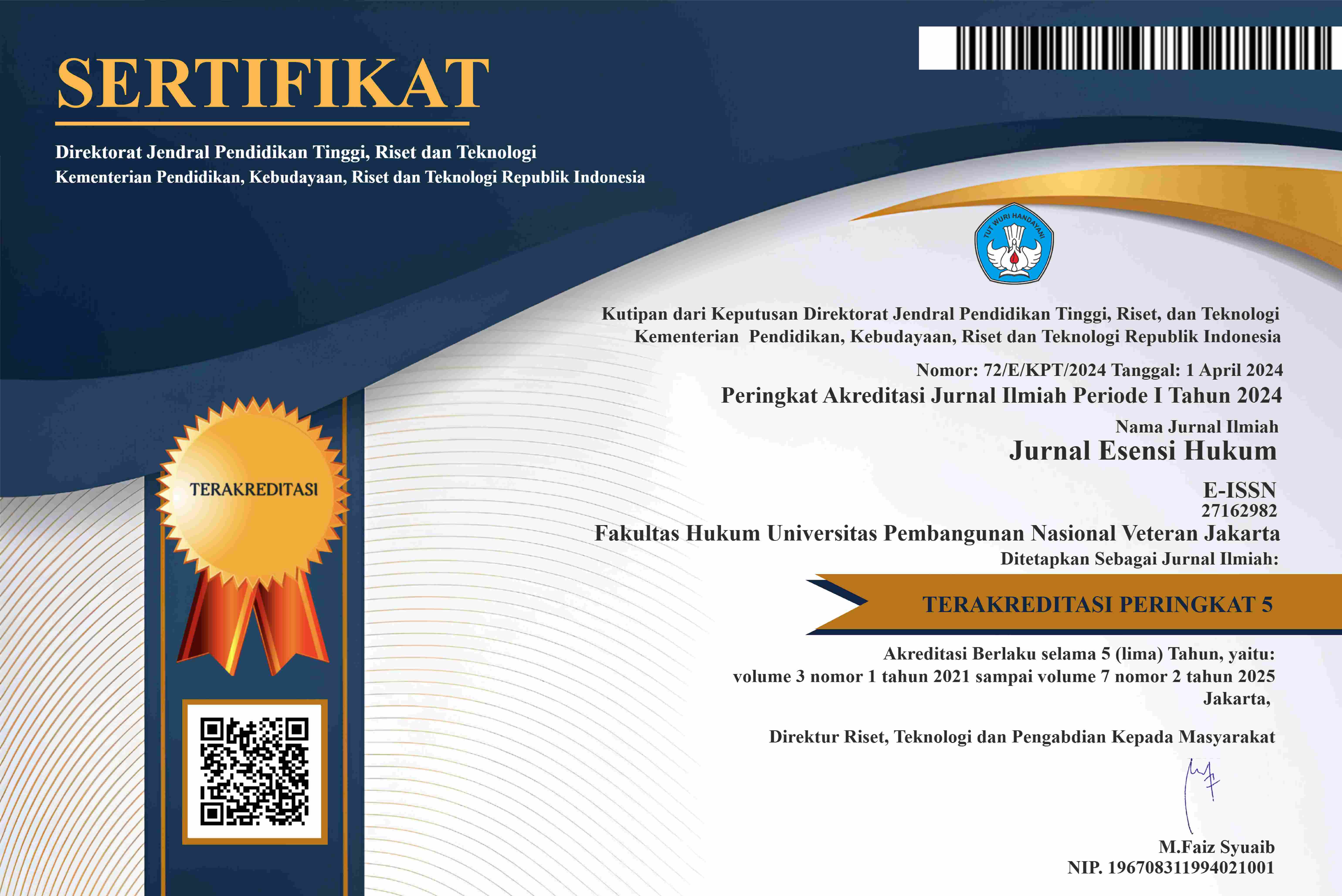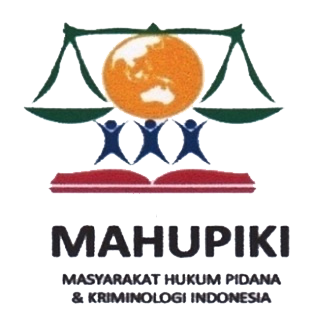TRANSFORMASI INDUSTRI KELAPA SAWIT: HILIRISASI BERKELANJUTAN MENGHADAPI DAYA SAING GLOBAL DAN EKONOMI HIJAU
Abstract
The downstream processing of palm oil in Indonesia presents significant potential to support the national economy while mitigating environmental impacts. Palm oil is one of the key commodities contributing to Indonesia's exports and Gross Domestic Product (GDP). However, it is important to note that the expansion of palm oil plantations has contributed to deforestation, loss of biodiversity, and increased greenhouse gas emissions. The downstream processing of palm oil, which involves transforming this commodity into value-added products such as biodiesel, cosmetics, and food, has the potential to enhance Indonesia's competitiveness in the global market. Furthermore, downstream processing can create new job opportunities and strengthen the domestic industrial sector. However, to fully harness this potential, substantial investments, sustainable research and development, and supportive policies are required, particularly in managing the environmental impacts generated by this industry. Therefore, a sustainable downstream strategy is crucial to ensure that this sector not only provides long-term economic benefits but also reduces negative environmental impacts.
Downloads
References
Daftar Pustaka
A, M., & L, S. P. (2024). Strategi Perdagangan Internasional Sawit Indonesia Menghadapi Kebijakan RED Uni Eropa. NAPBRES, 1(2), 165-167. p. 166
Abdullah, S. L., Akbariyah, A. F., & Wikansari, R. (2024). Potensi Ekspor Crude Palm Oil (Cpo) Di Indonesia. Journal Of Science And Social Research, 7(1), 61-67. 10.26418/jtllb.v12i1.74231. p. 62
Aznur, T. Z., Pulungan, D. R., Purjianto, & Saputra, E. (2024). Analisis Penerapan Premi Dan Denda Panen Tandan Buah Segar Kelapa Sawit (Elaeis GuineensisJacq.) Di Pt. Xyz, Dina Arfianti Saragih1). Jurnal Pertanian Agros, 26(1), 5067-5078.p. 5068
Barokah, M., Dewi, F. L. S., & Rahmawati, A. (2024). Dampak Keseimbangan Air Terhadap Pertumbuhan Tanaman Kelapa Sawit (Elaeis Guineensis): Review Literature. Agritechpedia: Journal Of Agriculture And Technology, 2(1), 48-54.p. 8
Borawski, P., Bórawska, A. B., Szymańska, E. J., Jankowski, K. J., Dubis, B., & Dunn, W. (2019). Development Of Renewable Energy Sources Market And Biofuels In The European Union. Journal Of Cleaner Production, 228(1), 467-484. 10.1016/J.Jclepro.2019.04.242.p. 468
Chiriac`O A, M. V., B, N. G., Santini, M., & Rulli, M. C. (2024). Deforestation And Greenhouse Gas Emissions Could Arise When Replacing Palm Oil With Other Vegetable Oils. Science Of The Total Environment, 914(1), 1-19. 10.1016/j.scitotenv.2023.169486. p. 4
Enala, S. H., Jalal, N., & Adam, A. F. (2024). Dinamika Sosial-Ekonomi Dan Lingkungan Di Wilayah Perkebunan Kelapa Sawit Merauke. Musamus Journal Of Public Administration, 6(2), 787-793. 10.35724/mjpa.v6i2.6172. p. 787
Guci, S. W., Dongoran, R. S., Rahmi, S., Rasyid, A., & Sakuntala, D. (2025). Strategi Peningkatan Eskpor Indonesia Menghadapi Tantangan Global Dengan Teori Perdagangan. Jebiman: Jurnal Ekonomi, Bisnis, Manajemen Dan Akuntansi, 3(2), 109-115.p. 110
Maggara, T. S., & Magriasti, L. (2024). Ekspansi Perkebunan Kelapa Sawit Politik Ekologi. , Ahkam: Jurnal Hukum Islam dan Humaniora, 3(1), 23-28. 10.26418/jtllb.v12i1.74231. p. 25
Muflihani, A. R., Mulyasari, G., Yuliarso, M. Z., & Sulistyowati, E. (n.d.). Analisis Sistem Agribisnis Pada Tanaman Kelapa Sawit Rakyat. Jurnal Agricultural Review, 3(2), 82-85. /10.37195/arview.v3i2.1084. p. 86
Paspi. (2024). European Union Deforestation Regulation (Eudr): Kompleksitas Dan Isu Tata Kelola Perdagangan Global. Journal Analysis Of Palm Oil Strategic Issues, 4(28), 168-174.P. 8
Rohkayati, E., & Sariar, R. R. (2024). Peluang Dan Tantangan Produksi Emisi Biomassa pada Pabrik Minyak Kelapa Sawit. Prosiding Seminar Nasional Sains Dan Teknologi Seri 02 fakultas Sains Dan Teknologi, Universitas Terbuka, 1(2), 611-617.p. 612
Sands, P., Peel, J., Fabra, A., & Mackenzie, R. (2018). Principles of International E n v i r o n m e n t a l L a w. United Kingdom : Cambridge University Press.
Sinaga, V. S., & Foekh, R. M. E. (2021). Kebijakan Uni Eropa RED II dan Delegated Act terhadap perdagangan produk kelapa sawit Indonesia. Jurnal Bina Mulia Hukum,6(1). 10.23920/jbmh.v6i1.197. p. 104
Sinatryal, A., Wulan, I. R., Tanjung, J. C., Fahima, S., Lestari, P., & Ngadisih. (2024). Potensi Ancaman Dan Upaya Mitigasi Emisi Gas Rumah Kaca Di Sektor Pertanian Indonesia: Tinjauan Sistematis Atas Literatur. Jurnal Teknologi Lingkungan Lahan Basah, 12(1), 245-254. 10.26418/jtllb.v12i1.74231
Sugiharto, B., Harkim, Simanungkalit, R., Andriani, M., & Marwan, A. (2024). Sosialisasi Hilirisasi Untuk Membangun Ekonomi Bangsa Di Kelurahan Sidorame Barat 2, Medan Perjuangan. Journal of Human and Education, 4(6), 740-743. /10.31004/jh.v4i6,
Sulastri, S. I., & Andika, S. (2023). Pengaruh Harga Crude Palm Oil (Cpo), Minyak Dunia Dan Foreign Direct Investment (Fdi) Terhadap Pertumbuhan EkonomiDi Asia Tenggara Ditinjau Dari Perspektif Ekonomi Syariah. Jurnal Ekonomi Dan Bisnis Growth, 21(2), 443-457. doi.org/10.36841/growth-journal.v21i2.3971. p. 246
Udita, N., & Fil’ardy Y, A. K. (2025). Tinjauan Produksi Dan Ekspor Minyak Sawit Mentah. JurnalEkonomika Dan Dinamika Sosial, 4(1), 94-119.p. 95
Yudha, Y. D. P., Anwar, M. Z. K., & Putra, D. P. D. (2025). Dampak Ekspor Dan Impor Terhadap Pertumbuhan Ekonomi Di Indonesia. Jurnal Riset Manajemen Dan Ekonomi, 3(1), 171-182. 10.54066/jrime-itb.v3i1.2839. p. 174
Peraturan Perundang-Undangan
Undang-Undang Republik Indonesia Nomor 32 Tahun 2009 tentang Perlindungan dan Pengelolaan Lingkungan Hidup. (Lembaran Negara Republik Indonesia Tahun 2009 Nomor 140, Tambahan Lembaran Negara Republik Indonesia Nomor 5059).
Undang-Undang Republik Indonesia Nomor 7 Tahun 2014 tentang Perdagangan. (Lembaran Negara Republik Indonesia Tahun 2014 Nomor 45, Tambahan Lembaran Negara Republik Indonesia Nomor 5500).
Undang-Undang Republik Indonesia Nomor 11 Tahun 2020 tentangCipta Kerja. (Lembaran Negara Republik Indonesia Tahun 2020 Nomor 245, Tambahan Lembaran Negara Republik Indonesia Nomor 6573).
Undang-Undang Republik Indonesia Nomor 59 Tahun 2024 tentang Rencana Pembangunan Jangka Panjang Nasional Tahun 2025-2045. (Lembaran Negara Republik Indonesia Tahun 2024 Nomor 145, Tambahan Lembaran Negara Republik Indonesia Nomor 5901).
Peraturan Presiden Nomor 61 Tahun 2011 tentang Rencana Aksi Nasional untuk Pengurangan Emisi Gas Rumah Kaca. (Lembaran Negara Republik Indonesia Tahun 2011 Nomor 118).
Peraturan Presiden Nomor 44 Tahun 2020 tentang Sistem Sertifikasi Perkebunan Kelapa Sawit Berkelanjutan Indonesia. (Lembaran Negara Republik Indonesia Tahun 2020 Nomor 145).
Peraturan Menteri Pertanian Nomor 98/Permentan/OT.140/8/2013tentang Standar Produksi Minyak Kelapa Sawit yang Berkelanjutan (ISPO). (Berita Negara Republik Indonesia Tahun 2013 Nomor 1965).
Laporan Pemerintah
Pusat Data dan Sistem Informasi Pertanian Sekretariat Jenderal Kementerian Pertanian. (2024). Analisis Kinerja Perdagangan Komoditas Kelapa Sawit, 19.
Siaran Pers Biro Hubungan Masyarakat Kementerian Perdagangan Indonesia. (2019). Lawan diskriminasi kelapa sawit Indonesia, gugat Uni Eropa di WTO. Retrieved fromhttps://www.kemendag.go.id/berita/siaran-pers/lawan-diskriminasi-kelapa-sawit-indonesia-gugat-uni-eropa-di-wto-3.diakses 15 Februari 2025
Online/World Wide Web
Komisi Eropa. (2023). Regulasi Tentang Produk Bebas Deforestasi. Retrieved fromhttps://environment.ec.europa.eu/topics/forests/deforestation/regulation-deforestation-free-products_en, diakses 15 Februari 2025
Copyright (c) 2025 Jurnal Esensi Hukum

This work is licensed under a Creative Commons Attribution-ShareAlike 4.0 International License.
Authors who publish with this Journal agree to the following terms:
1. Author retain copyright and grant the journal right of first publication with the work simultaneously licensed under a creative commons attribution license that allow others to share the work within an acknowledgement of the work’s authorship and initial publication of this journal.
2. Authors are able to enter into separate, additional contractual arrangement for the non-exclusive distribution of the journal’s published version of the work (e.g. acknowledgement of its initial publication in this journal).
3. Authors are permitted and encouraged to post their work online (e.g. in institutional repositories or on their websites) prior to and during the submission process, as it can lead to productive exchanges, as well as earlier and greater citation of published works.
4. 
This work is licensed under a Creative Commons Attribution-ShareAlike 4.0 International License.






2.png)

